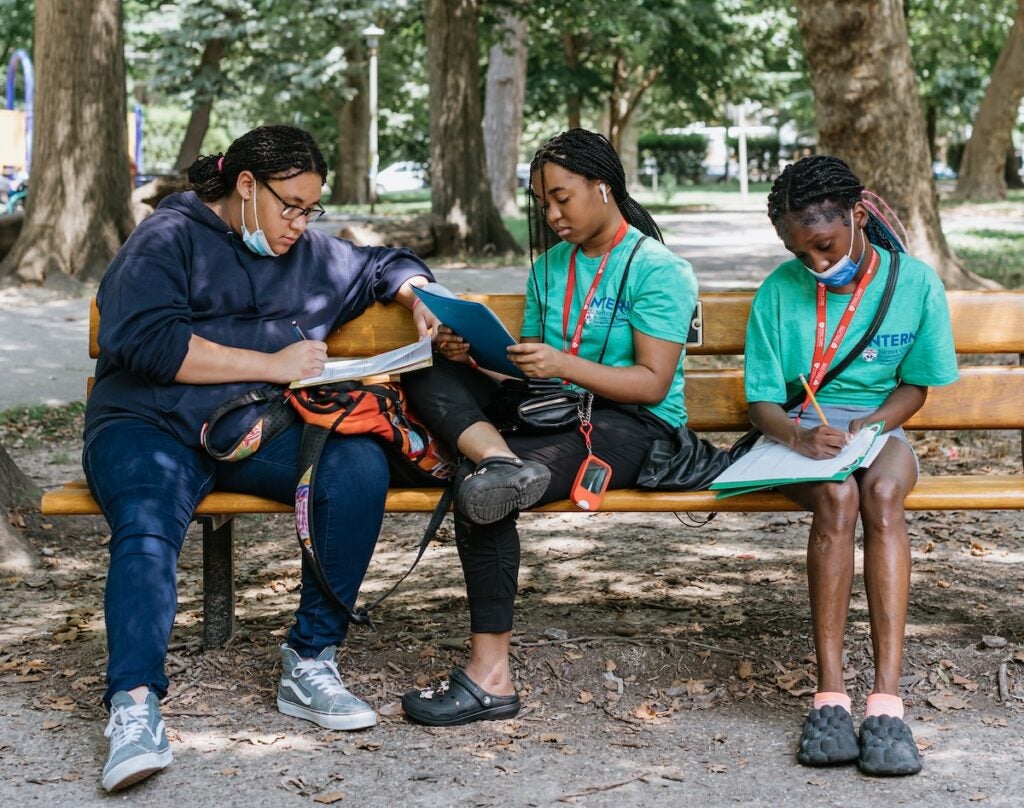Philadelphia public school initiatives around health are expanding, thanks to a continued partnership between the Penn Center for Public Health and the Netter Center, empowering middle and high school students with age-appropriate, relatable curriculums.
This collaboration brought comprehensive sexuality education to over 150 local students, who experience disproportionately high rates of pregnancy, STIs, and violence. The new curriculum includes gender inclusive language and expanded lessons on identity and safety, so that students from all backgrounds and identities can feel comfortable to learn.
“Access to quality sexual health education provides vital information and skill-building opportunities for young people,” said Julia Barrett, a sexual health education consultant. “Without comprehensive sex ed, Philly youth are fighting a battle to make safe, informed choices for themselves and their peers with one hand tied behind their backs.”
Another program, Public Health Pipeline Plus (PHPP), provided a six-week opportunity for high school students to learn research skills while studying urban public health issues in their community through hands-on education, mentorship, and professional development training.

“Going into Pipeline was like, ‘I don’t even know what is public health,’ and now I know so much about [it],” one 2023 PHPP intern said. “I can teach others about public health, and that right there says a lot about the program. Now I know so much about public health to go back and inform others.”
Both the comprehensive sexuality education curriculum and PHPP have helped work towards building a diverse public health workforce that can address health inequities in Philadelphia’s underserved communities.